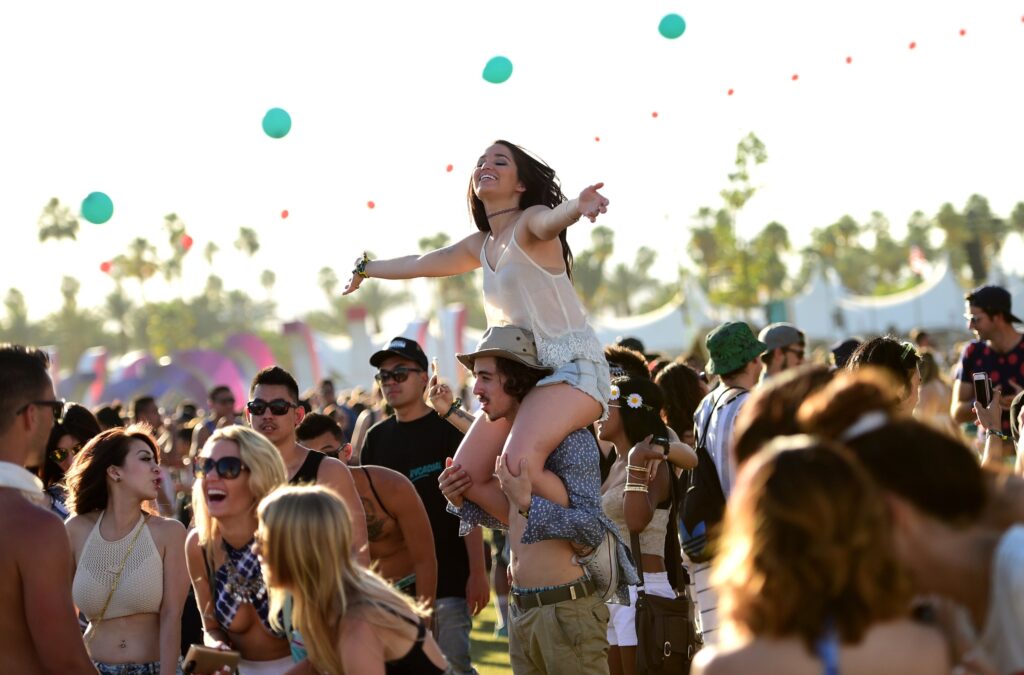You’ve probably heard of Burning Man as a wild desert gathering, a place where societal norms are discarded and radical self-expression is celebrated. Some label it as a contemporary incarnation of the 1960s hippie movement because of its anti-consumerist ethos and focus on community. Yet, does that paint an accurate picture of this unique event? While there’s a shared spirit, there’s more to it than free love and tie-dye. To truly grasp the essence of Burning Man, it’s crucial to explore its principles, culture, and origins. Does this align with your perception of a ‘hippie’ festival? Let’s investigate further.
Understanding Burning Man’s Origins
To fully grasp what Burning Man is, you must first dive into its rich and colorful origins. Birthed in 1986 on a San Francisco beach, Larry Harvey and Jerry James ignited an impromptu wooden man as a summer solstice celebration. This spontaneous act became an annual tradition, attracting a growing crowd.
In 1990, the gathering was relocated to Nevada’s Black Rock Desert, where it’s held today. Although it’s known for its artistic, outlandish, and radical self-expression, it’s not just about wild parties and massive art installations. The event also champions ten principles, including civic responsibility, radical inclusion, and self-reliance.
Burning Man has a certain ethos that sets it apart from common perceptions of ‘hippie’ culture. It’s a unique blend of counterculture, community, and creativity.
Defining the Hippie Movement
Before diving into whether Burning Man is a hippie festival, let’s first unpack the term ‘hippie movement’. It sprung up in the 1960s as a counterculture movement, a reaction against mainstream society. You’d recognize a hippie by their long hair, vibrant clothing, and penchant for peace symbols.
But it wasn’t just about aesthetics. Hippies championed peace, love, and equality. They rejected materialism, preferring to live simply and in harmony with nature. They experimented with alternative lifestyles, like communal living and eastern spiritual practices. Music played a big role in the movement, serving as a unifying force.
Let’s not forget, they were also known for their liberal attitudes towards drugs. That’s the hippie movement in a nutshell.
Similarities Between Burning Man and Hippie Culture
Drawing parallels between Burning Man and the hippie culture, you’ll notice striking similarities, starting with their shared emphasis on community and self-expression. Both cultures thrive on love, peace, and the idea of freedom.
Just like hippies, Burning Man attendees, or ‘Burners’, reject corporate consumerism, favoring barter and gift economics. You’ll find a colorful array of art installations, music, and performances at both, reflecting a shared love of creativity and personal expression.
Additionally, they both embrace a ‘leave no trace’ policy, signaling respect for the environment. And, just like the hippies, Burners believe in radical self-reliance and self-expression. Despite evolving in different times, it’s clear that Burning Man and hippie culture share fundamental values and practices.
Key Differences: Hippie Festivals Vs Burning Man
While Burning Man and hippie festivals share certain similarities, there are also notable differences that set them apart. Hippie festivals are often rooted in peace, love, and an escape from societal norms while Burning Man emphasizes radical self-reliance and expression.
You’ll find a strong barter system at hippie festivals, but Burning Man operates on a gift economy- no trading allowed. Also, while hippie festivals have a laid-back, relaxed vibe, Burning Man is more intense, featuring large art installations and rigorous desert conditions.
Even the music differs; you’re likely to hear more folk and classic rock at a hippie festival, whereas Burning Man leans towards electronic music. So, while they share a counter-culture spirit, they’re fundamentally different experiences.
Exploring the Unique Elements of Burning Man
Diving into the unique elements of Burning Man, you’ll encounter an environment unlike any other, where self-expression, radical self-reliance, and community take center stage. You’ll find no VIP sections nor sponsors, as everyone’s considered equal. It’s all about gifting, not commercial transactions.
You’ll see extraordinary art installations and theme camps, where each one offers a different experience. The city layout, based on a clock face, is another unique aspect, creating an organized chaos. The principle of ‘Leave No Trace’ also sets it apart, where participants are encouraged to respect the environment by leaving no garbage behind.
The Evolution of Burning Man
Now that you’ve grasped the unique elements of Burning Man, let’s trace its evolution from a small beach gathering to an international cultural phenomenon.
It all started in 1986, when a small group of friends decided to burn a wooden effigy on a San Francisco beach. The event grew, attracting more participants each year. As the crowd expanded, so did the structure and organization.
By 1990, it was moved to Nevada’s Black Rock Desert, a location that allowed for its exponential growth. Today, it’s a city in the desert, a cultural melting pot where around 70,000 people from all walks of life gather annually.
Through the years, it’s maintained its ethos of self-reliance, community, and radical self-expression.
Burning Man’s Impact on Contemporary Culture
You might wonder how this once small gathering has influenced contemporary culture. Well, Burning Man’s impact is far-reaching. It’s a hotbed for innovation, with many ideas born on the playa finding their way into the mainstream.
You can see its influence in the rise of ‘maker’ culture, where DIY meets art and science. Festivals worldwide now embrace radical self-expression and community, hallmarks of Burning Man.
In fashion, you’ll spot its influence in the trend towards individuality and self-expression. In the tech world, Silicon Valley entrepreneurs like Elon Musk and Mark Zuckerberg have been regular attendees, bringing the ideas and ethos of the event into their companies.
Debunking Myths: More Than a Hippie Festival
Despite its reputation, Burning Man isn’t just a hippie festival; there’s much more to the event than meets the eye. You might think it’s all about free love and psychedelic drugs, but it’s time to debunk that myth.
The festival, held annually in Nevada’s Black Rock Desert, is a melting pot of art, self-expression, and community. It’s a place where you’re encouraged to express yourself creatively, not just through fashion but also through art installations, performances, and interactive experiences.
It’s not about getting high; it’s about reaching new heights of human connection and creativity. So, don’t pigeonhole Burning Man as a ‘hippie’ event. It’s a unique cultural phenomenon that defies easy categorization.
Frequently Asked Questions
What Are the Rules and Regulations to Follow While Attending Burning Man?
While attending Burning Man, you’re expected to follow ten principles: radical inclusion, gifting, decommodification, radical self-reliance, radical self-expression, communal effort, civic responsibility, leave no trace, participation, and immediacy. It’s not all fun and games.
How Do I Prepare for My First Visit to the Burning Man Festival?
You’ll need to prep extensively for your first Burning Man visit. Pack essentials like water, food, and protective gear. Participate in community-building activities and respect the event’s principles. Remember, it’s a self-reliance festival.
Are Children Allowed at the Burning Man Festival?
Yes, kids can tag along to Burning Man. However, you’ll need to prepare for a unique environment and ensure they’re comfortable. Remember, it’s not your typical family-friendly festival, so use your best judgment.
What Is the Environmental Impact of the Burning Man Festival?
You’re asking about the environmental impact of the Burning Man festival. It’s significant due to the amount of trash produced, the carbon footprint from travel, and the potential damage to the Black Rock Desert’s ecosystem.
How Has the COVID-19 Pandemic Affected the Burning Man Festival?
The COVID-19 pandemic’s forced Burning Man to go virtual. You’re seeing fewer environmental impacts, but it’s also less vibrant. It’s not the same without the gatherings, performances, and the iconic burning of the effigy.
Consider our RV rental for your Burning Festival?
Are you thinking about transportation to the iconic Burning Man Festival? Consider Burning Man RV rentals! Renting an RV eliminates the hassle of packing and hauling bulky camping gear, allowing you to enjoy a stress-free and seamless experience. With our service, you can focus on creating unforgettable memories without worrying about the logistics.
At Glamper World RV Rental, we go above and beyond to ensure your camping adventure is nothing short of extraordinary. Our RVs boast top-of-the-line amenities, including custom requests, Starlink internet, smart TVs, Bluetooth speakers, espresso machines, outdoor seating areas, and even two e-bikes for exploring the surrounding terrain.
Conclusion
So, is Burning Man a hippie festival? Not quite. While it shares some elements with the hippie culture, it’s far more. It emphasizes radical self-reliance, civic responsibility, and a unique culture of gifting. Its desert location, stunning art installations, and unique city layout set it apart. Over the years, Burning Man has evolved and impacted our culture significantly, debunking myths and reinforcing the fact that it’s so much more than just a hippie festival.




